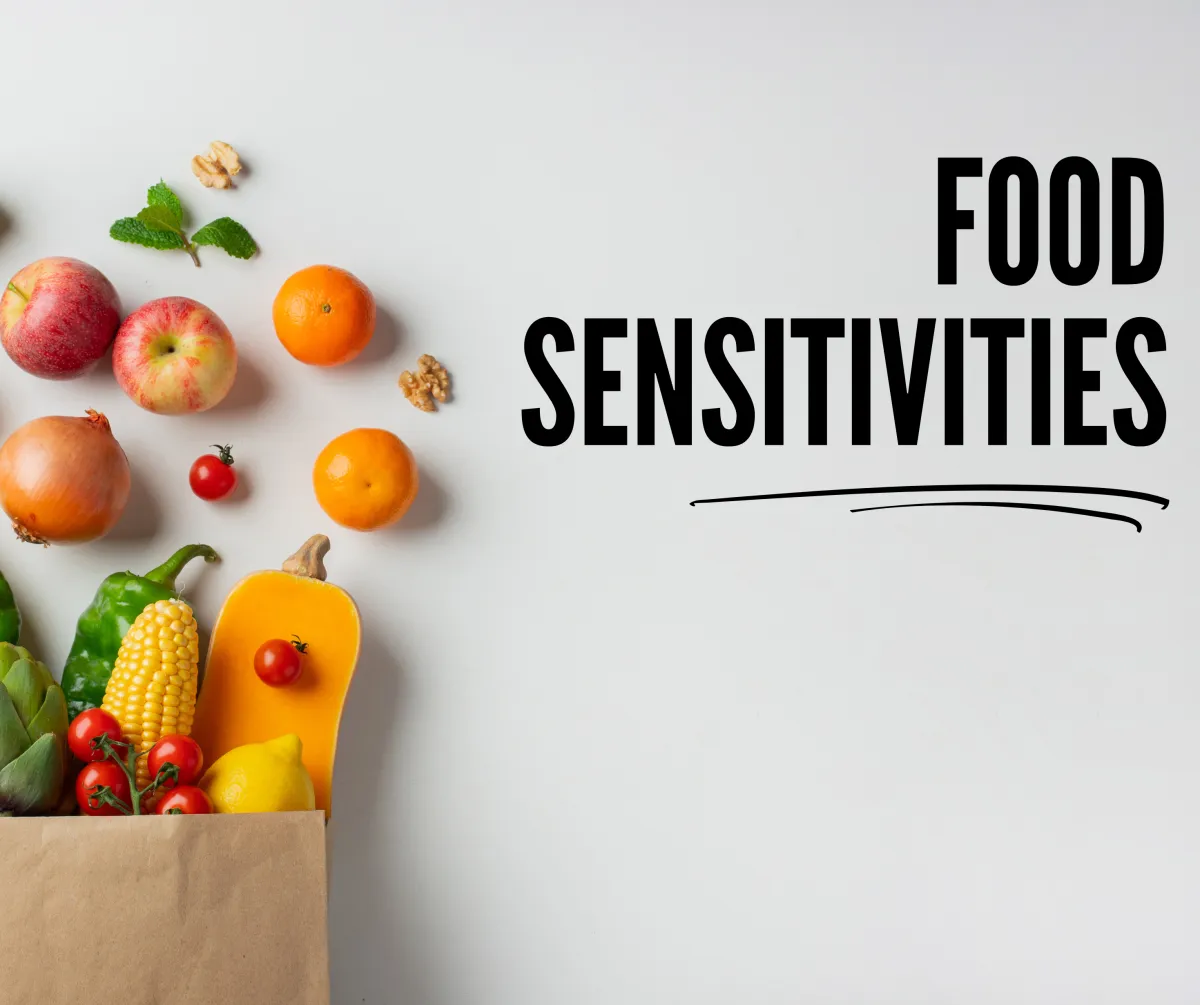
Food Sensitivities Are Common!
Discover EXACTLY Which Foods Are Making You Sick!
Weight Loss Resistance | Gut Dysfunction | Brain Fog | Fatigue | Autoimmune | Thyroid Dysfunction | Chronic Pain | ADHD
Book Your Food Sensitivity Testing Discovery Call
Symptoms Of A Food Sensitivity

Wondering if you have a food sensitivity?
Take this Quiz!

Keep in mind, hidden food sensitivities stress your IMMUNE SYSTEM, damage your gut, and spike inflammation in your body! This testing can be a game changer for you if you're struggling with any of the conditions listed below!
Crazy Statistics!!
Food sensitivities lead to inflammation-
"Chronic inflammation is linked to 7 out of the top 10 leading causes of death in the United States."
(Source: Centers for Disease Control and Prevention, CDC)
In this clinic we have a saying…"We Don’t Guess...We FOOD TEST!" The Proof is in the Report!
Before we dive too deep, there is an important thing you MUST understand! You must understand the difference between Food Allergy & Food Sensitivity.
Food Allergy:
A food allergy is an exaggerated immune response triggered by eggs, peanuts, milk, or some other specific food.
Food Sensitivity / Intolerance:
Food intolerance or non-allergic food hypersensitivity is a term used widely for varied physiological responses associated with a particular food, or compound found in a range of foods.
It’s important to recognize the difference. We test for the DELAYED sensitivity response…not the immediate response. With the immediate allergic response. This is NOT what we’re testing. We’re testing the 10-12 hour...sometimes up to 72-hour immune response that patients cannot figure out on their own!
Potential Causes of a Food Sensitivity

Understanding the Root Causes of Food Sensitivities
At Pura Vida Natural Wellness, we often explain that food sensitivities don’t just “appear” overnight—they’re the result of a complex interplay between diet, digestion, immunity, and even genetics. Here’s what may be contributing to your symptoms:
1. Repetitive Eating Habits
Eating the same foods every day—especially processed staples like wheat—can lead to food sensitivities over time. For example, wheat may show up in your cereal at breakfast, sandwich at lunch, and pasta at dinner. When the body is exposed to the same proteins too frequently, it can develop an inflammatory response.
2. Leaky Gut Syndrome
Your gut lining is meant to act as a protective barrier, allowing nutrients through while keeping toxins and pathogens out. But when this lining becomes inflamed—often from food sensitivities—it can develop microscopic gaps, a condition known as
leaky gut syndrome
. This allows undigested food particles, bacteria, and yeast to enter the bloodstream, triggering widespread immune responses. Symptoms may appear not only in the gut but also in joints, skin, brain, or cardiovascular system. Leaky gut may also begin early in life, particularly when infants are introduced to solid foods too soon.
3. Probiotic Deficiency
Healthy gut flora—or "friendly bacteria"—play a vital role in maintaining the intestinal barrier and defending against pathogens. A lack of beneficial microbes can contribute to leaky gut and immune dysregulation. Causes include antibiotic use, poor diet (high in sugar and refined carbs), stress, alcohol, smoking, and even excessive hygiene. A disrupted microbiome affects digestion, immunity, and inflammation.
4. Immune System Overload
We are constantly exposed to environmental toxins—polluted air and water, processed foods, pesticides, and chemicals. Over time, this burdens the immune system, weakening its ability to appropriately respond to food proteins. This chronic activation can lead to increased food sensitivities.
5. Genetic Susceptibility
Food intolerances can also have a genetic component. If both parents have allergies, their child has a 67% chance of developing them; if only one parent does, the risk is around 33%. Some individuals inherit enzyme deficiencies—like lactase, which is needed to digest dairy. In other cases, specific genes influence how the body reacts to foods like nightshades, gluten, or histamines. Your genes don’t determine your destiny, but they can influence how your body responds to certain dietary triggers.
By identifying and addressing these root causes through advanced testing, personalized nutrition, and gut healing protocols, we help you restore balance—because when your gut heals, your whole body thrives.
Ready to feel better?